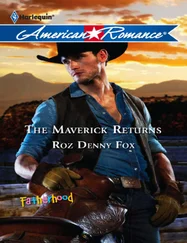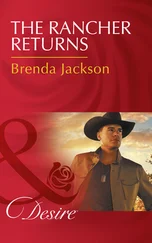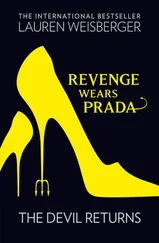“Santino,” Geraci said.
“Another country heard from.” He raised his cappuccino cup in a mock toast. “Thanks, O’Malley. Yeah: Santino. He said he wouldn’t avenge it or even look into it. The way we understood it was that his Family wouldn’t do that, but, see, it was all a bunch of fucking double-talk. All he meant was that he personally wouldn’t do it. Vito stepped down so that Michael could plot revenge and carry it out as soon as the old man died.”
“Forgive me,” Geraci said. “It’s not double-talk. It didn’t happen that way.”
“Look, Vincent,” Falcone said, “why are the Corleones the only New York Family represented here, huh? Why am I having a sit-down with you two and someone else’s wet-behind-the-ears soldato? Even your consigliere ’s not at the table.”
“No one ever called it a sit-down,” Molinari said. “It’s just a few friends talking is all. The weather clears, maybe Don Forlenza will loan us some clubs, we can grab some golf-”
“Very comfortable chair,” said Narducci, rubbing its arms.
“-or take a boat and go fishing,” Molinari continued. “Maybe have a cocktail with your nurse friend and a lovely afternoon of buttfucking.”
Falcone frowned. “I don’t do that-there. In culo? Did somebody say I did that?”
“Hit a nerve, did I?” Molinari said.
Don Forlenza drained his cappuccino and set his mug down so hard it shattered. No one at the table reacted. At first no one made any attempt to pick up the mess.
A door opened. The bodyguards leapt to their feet and faced it. Two of Forlenza’s men entered. Laughing Sal motioned for them to go. They went.
“We are not clever little policemen trying to solve crimes,” Forlenza said. He said “solve crimes” as if it were a fresh cat turd in his mouth and switched back to Sicilian. “I have my own problems and so, I gather”-he motioned toward Falcone and Molinari-“do you. If I have trouble in Cleveland, this affects no one in New York. No one there is concerned. The trouble is mine, as it should be. Yet if New York has problems, too often this, of no concern whatsoever to me, becomes my problem. The papers are filled with speculation. The police have questioned and harassed friends of ours far from the scenes of those crimes in New York-even our partners, people handling the money, running the businesses, fronting the investments. Some in Washington are pressuring the FBI to take agents away from their war on communism and send them after us and our interests. Senators are threatening to hold hearings. Even our legitimate businesses may be targeted by the IRS. I have grandchildren going to college, buying their first houses, and the complications I have had to endure simply to get my own money to them-”
He took a drink of water. They watched his hand as he set the glass down carefully.
“Well, you know. Millions of dollars of lost business, and it must be the same for you.”
Falcone began making a little sculpture out of cookies, strawberries, orange rinds, and nearby shards of glass.
“Our concerns,” said Forlenza, “are four.” He thrust out his left hand to say this, ready to tick off those reasons. It was a pet gesture. Forlenza had four reasons for anything. Four reasons Jews were misunderstood. Four reasons why, all pride aside, Joe Louis would have knocked out Rocky Marciano. Four reasons veal was better than sirloin. If Don Forlenza had been born with two extra fingers, he would have had six reasons for everything.
“First,” he said, returning to English, his right index finger bending back his left, “ New York. Helping them understand that this thing of ours can stand up to anything but infighting, that we all win the uneasy peace we have achieved simply by observing it.”
This met with nods of agreement all around, even from Geraci.
“Second”-middle finger-“ Las Vegas. Seven years ago, we sat in a fancy bank building in New York City and agreed that Las Vegas would be open for business for us all. A city of the future, where any Family could operate. Yet now the Corleones have set up headquarters there-”
Geraci started to talk, but Forlenza wagged a finger at him.
“-and the Chicago outfit all of a sudden thinks it’s in charge of enforcement there.”
“Fuckface,” muttered Narducci, a faraway look in his eyes.
“For your information,” Falcone said, now adding strawberries and more glass to his pile, “he don’t like to be called that.” Luigi Russo, who ran things in Chicago, preferred to be called Louie. He’d gotten his more colorful nickname (which the newspapers were forced to shorten to “the Face”) from a hooker who claimed the only sex he wanted was to stick his big nose up her cunt. Her decapitated body washed up on the Michigan side of the lake; her head was never found.
“Speaking of which,” Forlenza said, “third”-ring finger-“ Chicago.”
Geraci glanced at Falcone, whose operation was once just a branch of the Chicago outfit. No reaction. Every piece of glass that had been on the table was in front of him now.
“When we all met seven years ago, Chicago wasn’t even invited,” Forlenza said. “Can you imagine?”
Once, eager to direct Capone’s growth away from them, the New York Families had agreed that everything west of Chicago belonged to Chicago. There was still enough Cleveland in Nick Geraci to recognize this as a plan that could have made sense only to a New Yorker. Capone fell; brutal chaos followed. L.A. and San Francisco split off. Moe Greene, from New York, had a dream that became Las Vegas, which was designated an open city with no say from Chicago. After Greene was killed, the Corleones took over his casino and built the Castle in the Sand, but the most powerful force in the city was a coalition of the midwestern Families, led by Detroit and Cleveland. Chicago had points in that coalition (as did the Corleone Family, but only a few), and Louie Russo had made noises about wanting more control of it. Chicago was unified again and getting stronger by the day. With New York in turmoil, many saw Russo as the most powerful figure in American organized crime.
Forlenza shook his head in disbelief. “The New York Families said they’d given up trying to civilize Chicago. Back then, people called them our black sheep. Our mad dogs.”
“Our castrated chickens,” said Molinari, referring to the literal translation of Capone.
“Bunch of animals,” said Laughing Sal.
Falcone patted his pile on either side, shoring it up. It stood about two hands high. He leaned his face toward it as if he were trying to catch his reflection in the larger shards.
“And fourth”-pinkie-“drugs.” At that word, Forlenza slumped back in his wheelchair. He looked exhausted.
“Drugs?” Molinari said.
“Oh, boy,” said Narducci.
“Not this again,” said Falcone.
Geraci tried not to react at all.
“An old riddle, yes,” Forlenza said, “but one still unsolved. It is the biggest threat to our thing. Yes, if we don’t control it, others will, and we may lose power, but if-”
“If we do,” Falcone interrupted, “not that we aren’t already, the cops supposedly won’t look the other way like they do with gambling, women, unions, and so forth. C’mon, Vincent. Learn some new songs, huh? Look around. This little booze smuggler’s paradise”-a thunderclap boomed, in perfect synch with paradise- “that was your thing. You’ve done well, and salu’. But for men of my generation, it’s narcotics. For the next one, who knows?”
Narducci muttered something that Geraci heard as “Martian hookers.”
“Many of us,” Forlenza said, “when we took our oaths swore -swore, on our Family’s saint-that we would not be involved with narcotics.” He pointed to Falcone’s heap of cookies, fruit, and glass. “What are you doing?”
Читать дальше











